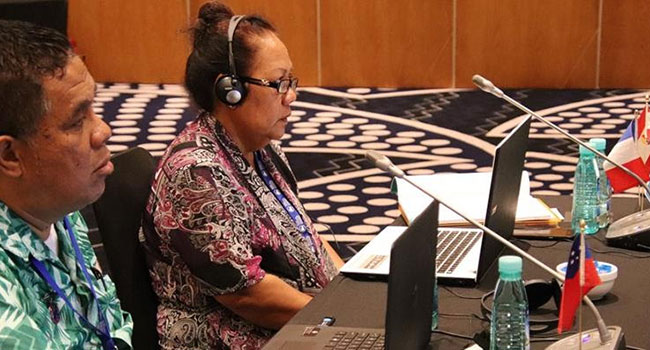
More support in strengthening nursery and midwifery leadership capacity was highlighted at the inaugural Pacific Heads of Nursing & Midwifery Meeting (PHoNM) held on 11-14 February in Nadi, Fiji.
Representatives from 13 Pacific Island Countries and Territories (PICTs) attended the meeting with nursing stakeholders and regional and international partners.
SPC’s Public Health Division Clinical Services Project Coordinator, Mabel Taoi, said it was a milestone for the region.
“There was no forum for nurses and midwives, but now we have a way to influence and drive health priorities and policies in the region.”
Key discussion was around nursing and midwifery workforce in the region including mobility of staff between countries especially during health emergencies; primary health care and universal health coverage; nursing education; and nursing regulation.
Nurses and midwives make up to 75% of the health workforce in some Pacific Island Countries and Territories and are usually the first responders during any emergency event. They play an important role in Primary Health Care and Universal Health Coverage.
The PHoNM meeting is an acknowledgement of the importance of nursing in the Pacific region, providing an equal platform with the Directors of Clinical Services (DCS) and the Directors of Public Health (DPH) meetings.
PHoNM Chair and Head Nurse of Moorea Hospital Chair in French Polynesia, Lys Nguyen said nurses are the heartbeat of the communities, workforce and discussions.
“We work for the people and we are finally coming together as a unified voice to face up to the challenges of SDGs and health.”
Recommendations from the meeting will be presented at the upcoming Heads of Health Meeting in April 2020.
The PHoNM meeting was organised by SPC with assistance from Australia’s Department of Foreign Affairs and Trade (DFAT) and other key partners including the Australian College Operating Room Nurses (ACORN), International College of Nurses (ICN), New Zealand Medical Treatment Scheme (NZMTS), Nursing Now, Royal Australian College of Surgeons Pacific Islands Program, UNAIDS, UNICEF, World Bank and WHO.



